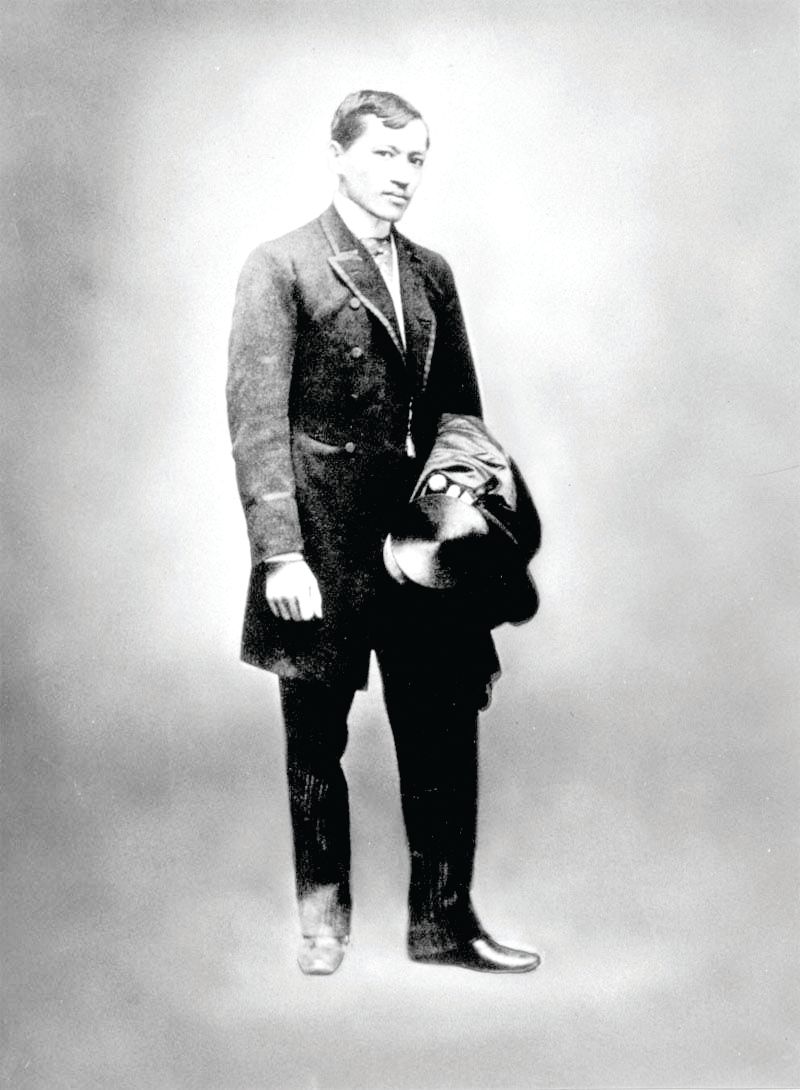One hundred twenty-eight years ago, rifle shots echoed during what was an otherwise quiet morning at Bagumbayan. With the Manila Bay as a backdrop, onlookers watched a lone figure tumble to the ground. The 35-year-old Jose Rizal fell dead, executed by firing squad, composed of Filipino soldiers enlisted in the Spanish army. (Little known fact: a squad of regular Spanish army troops were at the ready to shoot the Filipino soldiers should they refuse to carry out the execution, according to a 1923 book by Charles Russell and Eulogio Rodriguez.)
It is a familiar scene, one that has been recounted numerous times in film and TV shows throughout the years. Jose Rizal’s execution has become as iconic as the man himself—the Filipino icon, the mind that inspired a revolution which he, until his very last moments, did not acknowledge to be timely and relevant.
Rizal, the “hero anti-hero,” depending on how you look at his life, deserves the moniker “first Filipino,” given to him by former diplomat and novelist León María Guerrero, one of the foremost nationalists of his era. Rizal has all but sealed his significance in Philippine history through his numerous works (not limited to just the two novels he wrote) that introduced concepts and ideas about nationhood that remain relevant today—including what it means to be a Filipino.

It was Rizal who first defined Filipino to mean not the Spanish insulares or creoles living in Manila, but the inhabitants of the Philippines whose cultures have been forged under colonial rule but have existed even prior. But he didn’t stop there. He didn’t just define what a Filipino is, he also laid down what is essentially a framework for nation-building. A bit of this can be gleaned in the final chapter of “El Filibusterismo.”
Though not his most defining work, “El Fili” is considered to be a culmination of the maturation of Rizal’s ideas—from the more revolution-leaning “Noli Me Tangere” to the more disciplined thoughts in writings like “Filipinas Dentro de Cien Años” (published as a four-part essay from 1889 to 1890).
In the final chapters of “El Fili,” the main character Simoun airs out his frustrations to Padre Florentino, who in turn explains to him why his revolution has failed. Exasperated, Simoun asks what can instead be done to win the freedom he fought for by sowing seeds of discord. “Sufrir y trabajar,” replies the parish priest of the town of Tiani. In most English versions of the Fili, this has been translated as “endure and work.” While grammatically correct, this does not capture the essence of what Rizal presumably wanted to communicate in this chapter. A more apt translation would be “to suffer and to work.”
In order to be deserving of freedom—the freedom to be Filipinos—people have to suffer and to work for it. “Endure,” the more common translation, implies passivity. But in order to be free and to be truly Filipino, a nation had to be built. Nationhood is not an artificial construct, and Rizal understood this. A nation has to be built, not because it is artificial but because it requires a conscious effort. For a nation to be, its people need to deserve it and acknowledge that it exists. And the people during Rizal’s time were beginning to have this kind of acknowledgement, this awareness that although they belong to various provinces or regions, they form part of a Filipino nation.
Rizal, speaking through Padre Florentino, put it very clearly (and it deserves to be quoted in full): “No, Mr. Simoun, we must win our freedom by deserving it, by improving our mind and enhancing the dignity of the individual, loving what is just, what is good, what is great, to the point of dying for it. When people reach these heights, tyrants fall and freedom shines in the first dawn. As long as the Filipino people do not have sufficient vigor to proclaim, head held high and chest bared, their right to a life of their own and to guarantee it with their sacrifices, with their very blood; as long as we see our countrymen feel privately ashamed, keeping silent and even joining the oppressor in mocking the oppressed, and begging with their eyes for a share of the booty, why give them independence?”